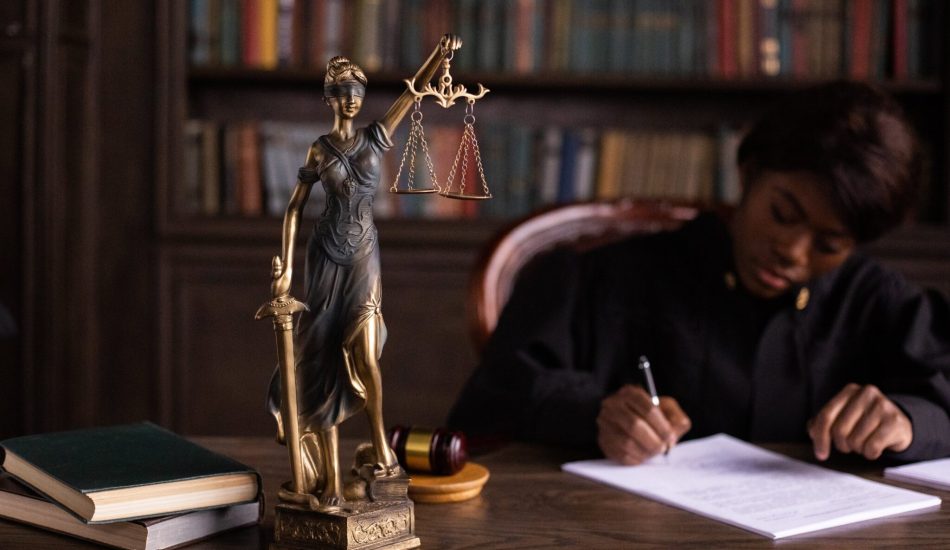What To Know About Negotiating A Plea Offer

Most criminal cases never get to trial. Sometimes a criminal defense lawyer can get all charges dismissed entirely, but more often, a defendant and the prosecutor reach a plea agreement.
If you face criminal charges, at some point the prosecutor and your lawyer are likely to discuss a plea bargain. It is always up to you whether to accept a plea agreement, so it is wise to learn about negotiating a plea offer, how to evaluate a proposed agreement, and about plea bargains in general.
UNDERSTAND THE BASICS ABOUT PLEA AGREEMENTS
Judges and prosecutors favor resolving criminal charges through plea agreements whenever possible. Plea agreements preserve court resources, move cases through the system more quickly, and ease pressures on local jails.
For a defendant, the benefits of a plea agreement include a quicker resolution to the case and certainty about the outcome. By pleading guilty to an offense through a plea deal, the defendant avoids the possibility of a conviction on a more serious charge and the threat of a more severe sentence.
PLEAS HAVE CONSEQUENCES
Plea agreements typically require the defendant to plead guilty to one of the charges they face or a lesser offense. The punishment is usually less than it would be if they were found guilty at trial, but not always. The prosecutor might attach conditions to the plea, like paying a certain amount in restitution or participating in counseling.
The plea is treated like a conviction. If you accept a plea agreement, you will have a criminal record. The record could have an impact on any professional licenses you hold, your immigration status, and your ability to travel outside the country. If you plead guilty to a felony, you may lose your right to vote, hold office, or own a firearm. It is vital to discuss these concerns with your lawyer while plea negotiations are ongoing.
CHOOSING TO PLEA IS YOUR CHOICE
Judges must first approve a plea deal, so both the prosecutor and the defendant’s attorney must be able to explain why it is a fair resolution to the charges. The judge could ask you whether you understand the agreement’s implications and accept them. Your attorney should discuss the offer with you in detail before you decide, and the decision is always yours.
ROOM TO NEGOTIATE
Prosecutors typically overcharge a case, meaning they charge someone with the most serious offense that could apply, even when the evidence supporting it might be shaky. They also bring as many charges as possible from a single incident. They do this to frighten a defendant and enhance their negotiating position.
Every criminal charge encompasses several elements the prosecutor must prove to win a conviction. A diligent defense lawyer finds the weaknesses in the prosecutor’s case and will use those weaknesses as leverage to get a better outcome for the defendant. Negotiations often require several meetings, with each side considering offers and counteroffers.
In many cases, after negotiating a plea agreement, several felony counts could be reduced to a single misdemeanor and a sentence that does not require jail time. In cases where the charges involve one or more serious felonies, prosecutors will sometimes accept a plea to a lesser felony, subjecting the defendant to a shorter prison sentence.
PROSECUTORS OFTEN SUPPORT DIVERSION
Arizona Revised Statute § 11-361 allows County Attorneys to establish programs emphasizing rehabilitation as alternatives to jail or prison. Each county has different pre-trial diversion programs, but a local criminal attorney should be familiar with the local programs.
Some pre-trial diversion programs require a participant to plead guilty to a charge and then complete a program that might involve substance abuse or mental health screening, treatment, life skills training, or other supportive services. If the offender completes the program, the conviction could be set aside or changed to a misdemeanor. Others dismiss charges if the participant completes the program.
Prosecutors are often amenable to plea agreements that incorporate participation in a diversion program. Any defendant should inquire whether such a program is available in their specific circumstances.
CALL GRAND CANYON LAW GROUP WHEN CONSIDERING A PLEA AGREEMENT
Negotiated plea deals are often beneficial to both parties, but not always. To determine whether a specific offer will benefit you, consult Grand Canyon Law Group.
We know about negotiating a plea offer and can work to ensure you get the best deal possible. Call now to discuss your situation with a caring professional.
